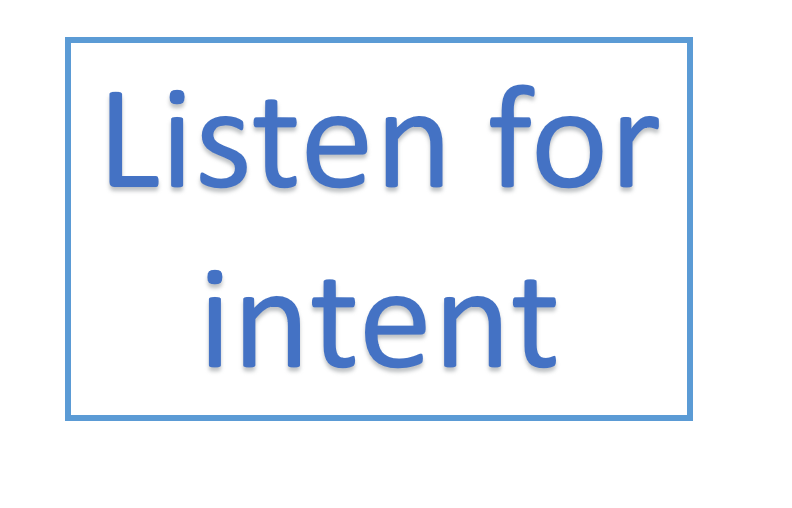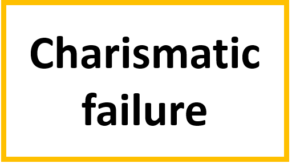Living Your Values
5 Second Rule

The other day I was eating cake at my desk when I accidentally knocked the pan off the table. It landed frosting-side down on the carpet.
My first reaction was to panic in case the frosting had become smooshed into the carpet strands (it hadn’t). Then I laughed, calmly picked up crumb after crumb with my fingertips and got back to work.
I was glad I didn’t get frustrated about the mess and the time it took to clean up. I think my relief at not having to deep-clean a quarter inch of chocolate goop out of carpet fiber helped me relax and find the humor in it. But I also remember a flicker of a moment when I decided to think it was funny instead of a setback to my schedule.
Maybe the next time I have a setback with work, I’ll use that blink of time to lighten up, or steel myself, or to decide to shrug and let it go. Kind of like I did with the cake crumbs.
Intent vs. Words
 Not long ago I attended a City Hall meeting where a contentious topic was being reviewed. The council members were voting whether to continue pursuing a specific site to build a homeless shelter for men. The chambers were packed with community supporters on each side of the issue.
Not long ago I attended a City Hall meeting where a contentious topic was being reviewed. The council members were voting whether to continue pursuing a specific site to build a homeless shelter for men. The chambers were packed with community supporters on each side of the issue.
For much of the meeting, three of the elected officials were in favor and four were opposed. When it was time for each council member to explain their position, it was fascinating to listen to those who opposed the shelter. They each emphasized their compassion for homeless people but wanted more data, more options, and more time to think about the issue.
If you took their words at face value, it sounded fine. But those of us paying attention to the issue for many months knew that they already had the data and options that they referenced. Instead of honestly saying “no, I oppose the shelter because it’s controversial” they gave excuses and hid their true intent behind words that meant the opposite of their actions.
It was easy to spot their deception because they have a clear motive for trying to appease everybody: they want to get reelected!
In the workplace, it isn’t always easy to tell when someone’s intentions are different from their words. For example, if you ask your manager for a raise and they say they need to ask their leadership team whether budget is available, they are deflecting the responsibility to other people. It would be simple to tell you later that they would have liked to increased your salary, but it wasn’t possible. You would have a hard time learning whether that was true or not.
If you get the sense that someone is hiding their true intentions behind words that are meant to convince you of the opposite, you can always ask them to clarify. A great way to do this is to paraphrase back to them what you think they mean – not what they are actually saying.
Work Karma
 It used to really bother me that leaders who abuse their authority often succeed in the workplace while ethical workers who perform their jobs well can easily be marginalized by those in power.
It used to really bother me that leaders who abuse their authority often succeed in the workplace while ethical workers who perform their jobs well can easily be marginalized by those in power.
I wanted work karma to punish bad managers and vindicate people whose careers were screwed over. I wanted fairness.
But most workplaces aren’t set up to reward good work and punish bad behavior. People-management systems reward those who please the people with power over their careers. Performance objectives such as cutting costs, launching successful products, or closing sales contracts matter more or less depending on who’s in charge.
Subjective, unwritten expectations have greater impact on individuals’ careers. Along with everyone else, leaders include their biases, perceptions, and fears when they make decisions about employees.
Have you ever had a manager who seemed to value everything you delivered? They had an assumption that you’re a strong worker and noticed every indicator that supported this idea.
Unfortunately, it also works the other way. If a manager dislikes you or decides you’re a poor performer, there’s not much you can do to change their opinion. There are plenty of ways to find fault in accomplishments when someone is determined to focus on the negative.
I’m still frustrated when good workers are mistreated and corrupt leaders get ahead, but I don’t dwell on it. I’d rather put my energy towards aligning my work with my values.
Be Wary of Charismatic Leaders at Work
 Throughout my career, there have been business leaders that inspired me to do my work with a deeper sense of purpose. I looked forward to their presentations at employee conferences and meetings because their speeches moved me. They clearly described their vision and how important it was for the team to achieve it. I left these events with fresh ideas for my projects and re-energized to complete them.
Throughout my career, there have been business leaders that inspired me to do my work with a deeper sense of purpose. I looked forward to their presentations at employee conferences and meetings because their speeches moved me. They clearly described their vision and how important it was for the team to achieve it. I left these events with fresh ideas for my projects and re-energized to complete them.
Time and time again, I was amazed at how smart and articulate they sounded. They described our mission in simple, easy to remember points, and gave us compelling reasons why we should care. They didn’t just make me think – they made me feel.
I give them credit for improving my strategies and plans because they made it easy for me to connect my work to the bigger goals of the organization. They strengthened my ability to get buy-in from other teams and leaders because I could show how my idea supported the top-down direction we were all supposed to follow.
So…great, right?
Not exactly.
Time and time again, these charismatic leaders disappointed me.
One leader dazzled me with his ability to get a room full of hundreds of people to enthusiastically commit to his vision. He got us to volunteer for additional work, and the vivid image of success that he described kept us focused for months. So it was confusing when after we delivered what he’d asked us to do, that nothing came of it. He didn’t take our front-line work and use his executive position to implement the goal we worked for.
I don’t know if his priorities had changed, if he lost interest in the goal, or if he simply lacked the ability to execute his vision. Plenty of people are very good at convincing others to support their ideas but lack the ability to push their projects to completion. Some of them have poor organization skills or get stuck when there are details to manage.
Unfortunately, this man was such a talented communicator that he got everyone excited about other things and moved on. The wasted time and potential was forgotten about.
Other charismatic leaders that failed me were more like empty vessels – appealing on the surface but not much inside. They think their only role is to imagine an outcome and inspire their followers to agree with them. Then they expect other people to figure everything else out because that kind of work is beneath them.
You can recognize this type of leader by their charming, magnetic personalities and the crowd of admirers that surround them. They will mesmerize employees with their strategic vision and big picture ideas but you won’t find them connected to the tactics, execution, or implementation.
 The danger of this type of leader is that when people rally around an outcome without understanding the plan to achieve it, bad things can happen. Loyalty to the leader and an emotional attachment to the end-goal can cause workers to take unethical or even illegal actions. They might think the ends justify the means. Or, their fierce loyalty may convince them that they aren’t doing anything wrong.
The danger of this type of leader is that when people rally around an outcome without understanding the plan to achieve it, bad things can happen. Loyalty to the leader and an emotional attachment to the end-goal can cause workers to take unethical or even illegal actions. They might think the ends justify the means. Or, their fierce loyalty may convince them that they aren’t doing anything wrong.
Charismatic leadership isn’t at fault for every corporate scandal. Volkswagen’s emission-cheating has been blamed on a fearful, authoritarian climate led by ex-CEO Martin Winterkorn – but that is a negative leadership style for a different blog post.
There are, however, charismatic leaders at all levels of organizations and it isn’t necessarily the CEO that employees blindly follow. Imagine a beloved executive getting staff excited to break a sales record without having a specific plan for achieving the goal. This happens all the time! Lower level managers might be tempted to cut corners, and what starts out as a gray area can turn into misuse of funds, which then becomes fraud. An entire department can be swept along in unethical or illegal activity.
This isn’t to say that every charismatic leader is bad. The website Make A Dent Leadership has an interesting article by Shelley Holmes about positive and negative aspects of charismatic leadership.
As for me, I can only think of one such leader that I would happily work for again. And…I can’t help but wonder…if someday this person will disappoint me, too.
Empathy. Intention. Action.
I read this article today. It’s about one black woman’s experience at school and work. I don’t have the same experiences as her – it’s not my story. I don’t know exactly how she feels. I can try to empathize, though, and think about my intentions and actions.
When the author describes teachers and colleagues making racial insults, I don’t know exactly what she thought and felt in those moments. I imagine she was angry and frustrated because those are the feelings that I had when reading about it. It brought to mind what it felt like when I’ve attempted to stand up for myself to people who had authority over me.
It doesn’t take much effort to try to empathize with someone who is hurt.
Taking action is harder than empathy because there’s risk.
At the end of the article, the author refers to an incident at a Seattle Starbucks that is described on KUOW’s site as A man shouts racial slurs in a Seattle Starbucks. The silence is deafening. In a crowded coffee shop, only one bystander offered support when two people were verbally attacked and spit on.
Maybe the other customers were afraid they would say or do the wrong thing, so they did nothing. Or they didn’t want to draw attention to themselves. Or they worried if they offered to help, they would be asked to provide assistance that they didn’t want to give.
There’s risk involved.
A couple of years ago I spent some time in an office building. One day I noticed writing on a whiteboard in a hallway. It said “Yesterday, I was walking quietly on the street. Suddenly, an angry young man got his head out of a taxi, and yelled, “Get out of America!” This never happened in Seattle. Now it’s the 3rd time in 3 months…Please speak out against discrimination. Speak out against hate. If you don’t, you are silently condoning it.”
Maybe the person wrote it hoping that people who haven’t experienced this kind of harassment will become more aware of it, have empathy for it, and offer support when they witness it.

The writing on the whiteboard was untouched for three days. Then a new message was added that said something like “I’m sorry this happened. I will speak up if I see it.” A couple other notes were added. The next day the whiteboard was blank again.
It wasn’t hard to empathize with the person who was yelled at from a taxi and asked us not to be silent bystanders.
It was hard, however, for that person’s coworkers to react – even through a few anonymous words on a white board.
It’s even harder to offer support to a stranger who’s been called racial slurs in a coffee shop.
These aren’t my experiences of hate speech. They aren’t my stories and it isn’t my place to end with a big statement about combating discrimination. But I can empathize. I can think about my intentions and actions. And maybe I can be brave enough to risk saying or doing something, even if it isn’t perfect.
It’s OK to be Angry at Injustice
 There was a time when I thought that anger was a bad emotion. We’re told to “cultivate peace in our hearts,” that “anger will eat you up inside,” and “to let it go.” Now I know it’s not that simple.
There was a time when I thought that anger was a bad emotion. We’re told to “cultivate peace in our hearts,” that “anger will eat you up inside,” and “to let it go.” Now I know it’s not that simple.
One of my favorite people that I’ve worked with gave me a new perspective about anger. We were talking about how a person with authority in our office treated people disrespectfully and mismanaged programs. This wasn’t a case of a little rudeness here and there; this was systematic bad management.
After venting to my coworker, I said something like “I should try to not get angry about this.” He stopped me and said, “There’s nothing wrong with righteous anger.”
I hadn’t thought of it that way before and it changed the way I viewed my feelings about the situation. I was reacting to injustice. Being aware of the problem and angry about it was better than pretending it wasn’t happening and that I should feel ok about it.
Anger has energy. If righteous anger fuels us to stand up to injustice, then it’s not a bad emotion. It’s a signal that our values are being violated and an energy to work towards change.
Keep Calm Before You Hit Reply
 One time I was working on a global promotion with someone in another company that partnered with the one I worked for. We each had different contacts in our European offices, and emailed them back and forth while we tried to determine who exactly we needed to work with, and when we could speak with them. After a week or so, the person I had been working with stateside emailed me that we could share the details of the promotion at a reoccurring meeting with the exact European colleagues that we needed to talk to.
One time I was working on a global promotion with someone in another company that partnered with the one I worked for. We each had different contacts in our European offices, and emailed them back and forth while we tried to determine who exactly we needed to work with, and when we could speak with them. After a week or so, the person I had been working with stateside emailed me that we could share the details of the promotion at a reoccurring meeting with the exact European colleagues that we needed to talk to.
Great!
He forwarded the meeting invitation to me, and I quickly drafted a short explanation of the promotion and agenda for the next meeting occurrence, which I emailed to the meeting attendees.
What happened next was so awful that I still cringe when remembering it.
The meeting owner immediately replied to me and copied everyone who had been sent my original email, informing me that I was not permitted to hijack his meeting, I was completely unprofessional and he was going to tell my manager how rude I was, etc, etc. He wrote that he set up a new meeting series with a new conference call number that I wasn’t invited to, so there is no possible way I could join his meeting, ever. There were a lot of capitalized letters and exclamation points.
I was stunned. I got on the phone with the person from the other company to ask what happened. It turns out I wrongly interpreted his email to mean that he had organized our presentation with the meeting owner. What he meant was that the people we needed to speak with had regular meetings and we could try to get on their agenda.
Oh.
You know that saying, “When you assume you make an ass out of u and me”?
Yep.

I needed to do damage control but there was no way I was calling this guy. For one thing, there was a nine-hour time difference and it was too late at night to receive calls at his location. Also, I didn’t want to experience over the phone the same level of rage that came through his email.
I started drafting an email response but was so upset that it was difficult to know what to write. I was very sorry for my screw up but also defensive because I had acted in good faith. At the heart of the matter, the joint promotion I offered would help increase sales of a product that none of them were meeting their forecasts for.
I was also angry and offended by his words, and humiliated that he blasted me with 30 other colleagues on the email. I wasn’t ready to appreciate the irony of him labeling me as unprofessional.
So, my email response was not coming along very well. I got up from my desk in search of my manager or someone else who could advise me. Luckily, I ran into Jill. She is to this day the most unflappable business person I’ve ever met. I told her what happened and asked her advice.
She suggested that I reply to everyone on the email and in as few sentences as possible, explain my mistake and apologize – but to strip the emotion out.
I went back to my computer and wrote several more drafts until I had a version that sounded neutral. I hit “send”, went home, and dreaded what I would find in my inbox the next day.
I only received one email reply, from a colleague of the meeting owner. He wrote that he was embarrassed by his coworker’s email and apologized on his behalf. I never heard from the meeting owner again and forgot his name a long time ago.
What I remember, though, is how effective it was to reply to a heated email in a completely neutral tone. If I had responded in a way that sounded defensive, offended, or angry, I would have been adding fuel to an emotional situation. On top of making a careless mistake, I would have appeared as bad-tempered as the other guy. Instead, I looked mature and rational by taking responsibility for the situation and briefly explaining why I thought I had been on point for the meeting.
I try to remember to read my email responses out loud whenever I’m responding to someone else’s strong emotions. If I sound mild to my own ears, my text is probably fine. And when its about participating in someone else’s meeting? I do not assume.
Your Truth at Work
 Making good decisions about our words and actions is part of having – and keeping – a job.
Making good decisions about our words and actions is part of having – and keeping – a job.
Whether working with customers, coworkers or employers, there’s a certain amount of self-editing that is required to get along with people and sufficiently meet the expectations of the people that pay you.
Choosing to not say exactly what you’re thinking is a good decision much of the time. Spewing unfiltered frustration damages relationships and your reputation.
At the other end of the spectrum, censoring yourself too much isn’t constructive either. Constantly saying what your manager wants to hear, when it isn’t what you believe, is exhausting. Going along with unethical decisions out of fear probably won’t erase your fear – but will add feelings of guilt. Holding back when you have an opportunity to contribute deprives both you and your organization of your ability to make an impact.
Modifying your behavior at work to the extent that you aren’t being true to yourself isn’t healthy. It’s stressful and depressing.
In some workplaces, there may be room for adjustment. Maybe you can say what’s important to you by approaching the topic in a way that reduces the risk of upsetting the people you work with. Dale Carnegie’s How to Win Friends and Influence People has great tips for situations like this. Taking a Dale Carnegie class is even better because you get to practice these skills.
If attempting to influence the organization doesn’t work and you’re currently not able to get a different job, you still have control over something: your truth. You might need to smile and nod for self-preservation, but you can acknowledge to yourself what you see, hear, and believe. Don’t let them steal your truth.


Recent Comments